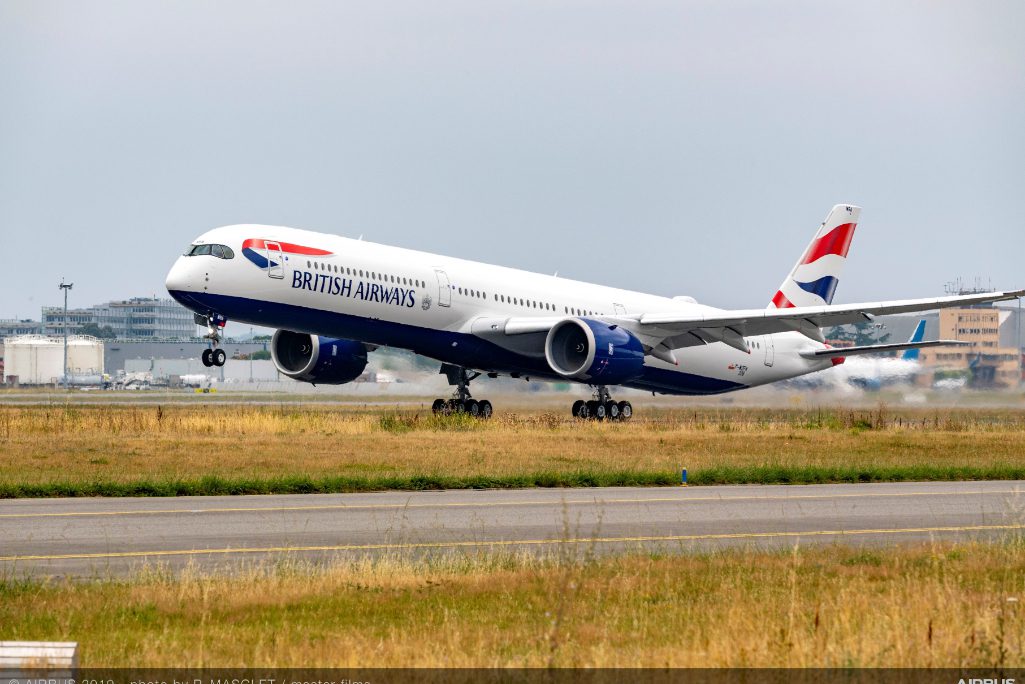British Airways Says Pandemic Isn't Deterring Agency Support for Booking Tickets With New Tech Method

Skift Take
British Airways says it isn't letting the pandemic stop its multi-year overhaul of how it distributes its tickets to travel agencies. But a top executive conceded in an interview with Skift that it had postponed several of its planned steps to crank up the pressure on agencies to switch to its direct connects.
Some industry skeptics had expected the direct distribution pushes by large airline groups like International Airlines Group, Lufthansa Group, Air France/KLM Group, and Qantas Group to run aground during the pandemic. The effort often involves surcharges on tickets, changed financial incentives for agencies, and new technological systems that agents have to learn. The goal is to reduce indirect sales via tech partners like Amadeus, Sabre, and Travelport and create new ways of selling, the carrier said.
"We were wondering what was going to happen and if the enthusiasm and the interest in our NDC proposition would decrease because we assumed some agents would be in financial difficulty," said Rogier van Enk, head of distribution and payments at British Airways. "Surprisingly, [the crisis] has increased the level of interest.
British Airways announced its biggest agency win yet last month when Reed & Mackay, the UK's largest travel management company, made a direct connection with British Airways' modern data feed (or application programming interface, or API) that gives the agency access to all of the airline's content, including content using new messaging standards, called the new distribution capability (NDC).
"We see in our numbers that, for bookings that come through NDC, the passengers there are a hundred times as likely to buy an ancillary as a passenger who booked through a GDS [global distribution system]," said van Enk.
As Skift noted earlier this month, Qantas has pursued a similar breakaway distribution strategy that has similarly drawn some grumbling from travel agencies over its disruption of a longstanding model where agents get incentives and free tech support from distribution middlemen like Amadeus, Sabre, and Travelport.
Is British Airways kneecapping agencies, particularly small- and mid-sized agencies, by pursuing a strategy that tosses the old incentive structure up in the air?
"A lot of our NDC volume actually currently comes from the small to mid-sized agencies now," Van Enk said. "So they're jumping on board of this journey. They can be much more nimble and flexible than some of the big players even, who have maybe been more reliant on some of the more traditional technology providers."
Reed & Mackay can use the airline's API to access a broader array of price points for long-haul flights than the carrier has offered before. This so-called "continuous pricing" is possible due to the more modern communication standards. British Airways uses a platform run by International Airlines Group.
Most large airlines set their fares in 26 stair-step levels. As part of this traditional airline pricing, each class has a band of fares. When seats sell out in one class, computers typically offer seats in a more expensive class. Airlines can find workarounds, such as branded fares and fare families, but those can be difficult.
Continuous pricing aims to be more precise. It provides customers a fare without needing to round the fare artificially due to a technical limitation in the distribution of offers.
The carrier's seeks lower net cost of distribution by shifting away from what it called high-cost third-party channels. It also wants increased revenue from using digital selling methods that encourage more upselling and better matching consumer demand for prices from the budget to the high-end.
As part of a policy driven by parent company International Airlines Group (IAG), the carrier has continued to invest in the technology and training for its distribution effort. Back in 2016, parent company International Airlines Group — which also includes Iberia, Aer Lingus, Iberia Express, Level, and Vueling — saw 57 percent of its end-year volume share come through Amadeus, Sabre, and Travelport. By 2019, the group had driven that "indirect" share down to 45 percent. It credited the surcharges and new data feeds for the change.
Post-crisis, International Airlines Group has its work cut out on reducing its selling costs. Last year, the group's overall cost of selling per airline seat kilometers (number of seats available multiplied by flight distance) was $0.37 (€0.31). But the group's selling cost will hover above that level for years to come, forecast Deutsche Bank Research in an October report — predicting between $0.44 (€0.37) and $0.49 (€0.41) through 2025. Distribution is one part of the airline's selling costs, so the crisis may put additional pressure on the airline to clamp down on indirect sales costs.
Temporary Tweaks to the Strategy
Before the crisis, the carrier had planned to use a mix of carrots and sticks to encourage agencies to sign up. The "carrots" included better content that delivers more revenue for agencies and the airline. The "sticks" included things like setting aside some content only for agents that participate in its preferred channels.
Van Enk, who reports to Andrew Brem, chief commercial officer at British Airways, said that the pandemic prompted the group to drop some "sticks."
British Airways had planned in March to start removing content from Amadeus, Sabre, and Travelport, which was the lowest booking classes of its handbag-only products. But it held off making that move, leaving all of its fares in the traditional distribution channel for now.
It had also planned to shelve its private channels, which had carved out exceptions for some agencies. It will continue to allow these agencies to book via global distribution systems without being hit by its full surcharge until the crisis eases.
"We put all the sticks on hold because we wanted agents to recover from this crisis," Van Enk said. "They'll come back eventually. We are still adamant about our journey towards our transformation of distribution and introducing a new distribution model."
The surcharge is staying, however, even though it makes British Airways tickets booked through the reservation systems of Amadeus, Sabre, and Travelport more expensive. International Airlines Group charges $15 (€13, or £11) per segment for tickets booked via global distribution systems. (A simple round-trip ticket has two segments.)
The group's surcharge matches Air France-KLM's. But since October 1, Lufthansa Group slaps on a $21 fee in the US (€19 in Europe), up from $17.50 (€16 in Europe), which as a round-trip cost is less expensive of a fee in comparison. Is International Airlines Group pricing its surcharge fairly?
"Our distribution charge is a direct reflection of the cost we incur from our distribution partners," Van Enk said. "So I can't say whether it's fair or unfair, but it is a direct cost recovery of the cost we incur."
While British Airways has offered agencies its next-generation data feed for a couple of years, it was only early this year that it resolved many of the lingering agency concerns about the ability to service tickets in complicated situations, such as last-minute cancellations and the ability to change dates and times for reservations agents put on hold before ticketing.
"For voluntary and involuntary changes like flight cancellations and flight changes are now being handled, most of it automatically, with a notification sent to the agents in case of changes so they can inform their customers," Van Enk said. "That was all really completed right when the pandemic hit."
While British Airways has had to pause many projects during the revenue hit due to the pandemic, it has continued investing in the technology supporting the distribution effort. Unlike some other network airline groups, International Airlines Group has hired computer engineers to do the brunt of the technical work.
"IAG hasn't bought the tech off the shelf from a supplier," Van Enk said. "We have a whole bunch of talented nerds on my team who have built this from scratch using a very modern, digital, agile methodology. It gives us quite amazing flexibility to build stuff really fast. And in the coronavirus crisis, we've had to do some special things around voucher handling and all the products."
"There are certain things that we think are our core to our retailing capabilities," Van Enk said. "It's an area that we don't necessarily want to be dependent on a third party. We do have parts of our solution being powered by a white label solution by one of our vendors. But the majority is built with our own hands. It's a choice we made a few years ago."
While British Airways may still burn with enthusiasm over the new distribution capability, other network carriers may struggle to muster the resources to keep pursuing the effort during the pandemic recovery.
But even if other network carriers drop their pursuit of the new distribution capability, that won't stop British Airways, Van Enk said.
"It's still a profitable exercise for us," Van Enk said. "Legacy airlines might be jumping on this bandwagon, but this distribution model has existed for many years already on the low-cost carrier side. They have a much higher API distribution penetration than we have. We still have room to gain, regardless of what other large airline groups do."
In September, Air France-KLM and Amadeus agreed on commercial terms to make the airline group's plane tickets available for travel agents to book through the Amadeus travel platform via newer, more modern forms of selling. Will the International Airlines Group pursue a similar deal?
"We are having constructive conversations with all the GDSes, but no breakthrough," Van Enk said.
Amadeus appeared to be the furthest along of the technology giants in scaling up the industrial adoption of the new ways to send data, the new workflows for travel agents, and the new commercial terms for ticketing. It will test the effort with some agencies in Asia Pacific this year, with a plan to speed up a worldwide rollout in 2021. Peer company Travelport has continued to migrate to a new tech platform and to embrace the new distribution capability. Sabre has also been scaling up new distribution capability projects.
For more context, see "Lufthansa Group Shifts to Next Phase of Its Pioneering Distribution Strategy."





